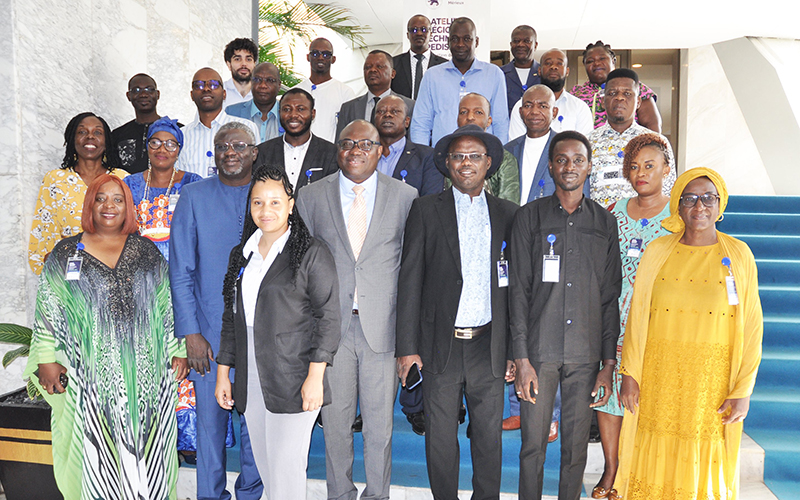
REDISSE IV regional technical workshop held in 2024
ECCAS received funding from the World Bank to support the reinforcement of the health systems of five beneficiary countries, enabling it to carry out regional coordination of the fourth phase of the Regional Disease Surveillance Systems Enhancement project (REDISSE IV) in Central Africa. One of the goals of this project was to strengthen laboratory networks at national, infra-national, and sub-regional level based on a One Health approach. The Mérieux Foundation was chosen for its experience in the field to provide its expertise, drawing particularly on its experience with RESAOLAB, the West African Network of Medical Biology Laboratories.
Working closely with the health ministries in the Central African Republic, the Republic of the Congo, Chad, Angola, and the Democratic Republic of the Congo, the Mérieux Foundation’s technical assistance was founded on two themes:
- Institutional reinforcement through support for national medical biology policies;
- Improving technical capacity in terms of the quality of biological diagnostics.
Drawing on its expertise in reinforcing laboratory systems, the Mérieux Foundation identified and put in place an appropriate action plan, working with the REDISSE IV coordination department in each beneficiary country.
First, a mapping of players in the One Health laboratory system was created in order to identify those responsible at animal, human, and environmental health laboratories, together with their respective roles and responsibilities.
This first stage enabled the project’s key activities to be put in place:
- Evaluation of the laboratory systems in Congo, the Central African Republic, and Chad. These evaluations were conducted using the LabNet Scorecard tool with a One Health approach;
- A workshop to define the priorities of a national plan to improve laboratory systems in order to structure the priority actions to take in each of these three countries;
- A second workshop, bringing together all five countries in the project. An initial working session enabled participants from Congo, the Central African Republic, and Chad to identify a list of priority diseases for each country based on the seriousness and incidence of these infections. A second session aimed to train participants from the five countries in data management and external quality assessment. The final session was an opportunity to train trainers of trainers in adult education and the modules of the Mérieux Foundation’s training manual for laboratory technicians.
The flexibility and availability of ECCAS, combined with the expertise and adaptability of the Mérieux Foundation, made it possible to meet the challenges encountered during the project’s implementation and achieve its objectives. Integrating the One Health approach, which involves considering animal and environmental health alongside human health, proved to be a strength and a major innovation for the project.
The involvement of experts from West African countries was particularly appreciated in that it enabled a deeper sharing of experience between countries with shared realities, even if certain contexts and procedures had to be adapted from one region to another.
The appropriation of the project by the national authorities, including technical departments, demonstrated its success.
